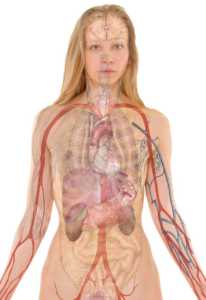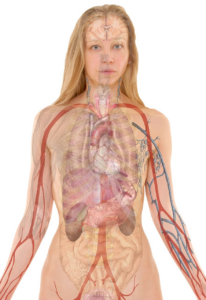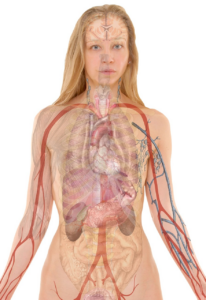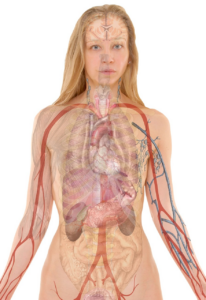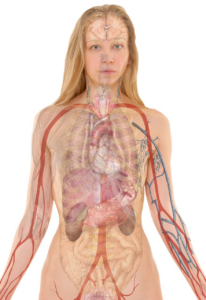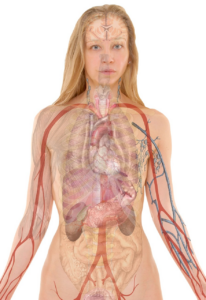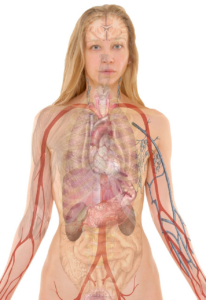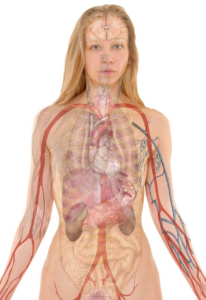Are you an aspiring nurse preparing to take the NCLEX-RN exam? Are you feeling overwhelmed by the amount of information you need to remember? Don’t worry, you’re not alone.
Studying for the NCLEX-RN can be a challenging and stressful process, but with the right tools, you can improve your chances of success. One such tool is a nursing exam cram sheet for the NCLEX-RN.
This quick reference guide is designed to provide you with a concise and comprehensive overview of the most important information you need to know for the exam. Whether you’re studying pharmacology, patient care, medical-surgical nursing, maternal and child health, mental health, or professional practice, this guide has got you covered.
By using this cram sheet, you can save time and focus on the most critical concepts you need to master to pass the exam. So, let’s take a closer look at what this guide has to offer.
Key Takeaways
- Nursing exam cram sheet covers a wide range of topics, including pharmacology, patient care, medical-surgical nursing, maternal and child health, mental health, and professional practice.
- Nurses must prioritize patient safety and well-being, personalize their approach to meet each patient’s unique needs, follow standard protocols and procedures, and continuously develop skills and knowledge.
- The sections on maternal and child health cover pregnancy and childbirth, pediatric nursing, and neonatal care, which require special skills and knowledge, recognition of common illnesses, and understanding of developmental milestones.
- Mental health is a critical aspect of overall well-being, and nurses must reduce the stigma associated with mental health, use therapeutic communication techniques, and establish a trusting relationship with patients to create a safe space for them to express themselves.
Pharmacology
You’ll need to know these drugs like the back of your hand to pass the NCLEX-RN, so let’s get to it! Pharmacology is a big part of the exam, and one key area to focus on is drug interactions. You need to know how different medications interact with each other, and how they may affect a patient’s health. It’s important to understand the mechanisms of action, as well as the side effects and adverse reactions of each drug.
Additionally, you should be familiar with the various routes of medication administration, such as oral, topical, and intravenous, and how they may affect the absorption and efficacy of the drug.
Another important aspect of pharmacology is medication administration. You need to know the correct dosage and timing for each medication, as well as any special considerations for different patient populations, such as pediatric or geriatric patients. It’s also crucial to understand how to properly prepare and administer medications, as well as how to monitor and assess their effectiveness.
By mastering these key concepts in pharmacology, you’ll be well on your way to passing the NCLEX-RN and becoming a successful nurse.
Patient Care
When it comes to patient care, there are three key points you need to keep in mind: assessment and diagnosis, nursing interventions, and patient education.
Assessing and diagnosing a patient’s condition is crucial in providing effective care, as it helps you determine the appropriate interventions and treatments.
Nursing interventions, on the other hand, are the actions you take to address the patient’s needs, such as administering medications or performing procedures.
Finally, patient education plays a vital role in helping patients understand their condition and how to manage it, which can improve their overall health outcomes.
Assessment and diagnosis
Assessing and diagnosing are crucial aspects of nursing practice that require attention to detail and critical thinking skills. As a nurse, you must be able to perform a thorough physical examination to gather information about your patient’s health.
This includes assessing vital signs, inspecting the body for abnormalities, and listening to the patient’s heart and lungs. Additionally, you may need to order and interpret laboratory tests to aid in your diagnosis. These tests can provide valuable information about a patient’s blood chemistry, organ function, and infectious disease status.
When assessing and diagnosing a patient, it’s important to keep in mind that every individual is unique. You must be able to take into account the patient’s medical history, current medications, and personal preferences when developing a treatment plan.
Additionally, you must be able to differentiate between normal and abnormal findings, and know when to seek further medical assistance. Remember to communicate effectively with your patient and keep them informed about their care plan.
By mastering the skills of assessment and diagnosis, you can ensure that your patients receive the best possible care.
Nursing interventions
Get ready to learn easy and effective ways to take care of your patients with nursing interventions! As a nurse, you’ve got a crucial role in ensuring your patients’ safety and well-being.
Effective communication with your patients is key to providing quality care. Always start by introducing yourself and explaining the purpose of your actions. Make sure to listen attentively to your patients’ concerns and address them accordingly.
Remember that every patient is unique, and their needs vary, so it’s essential to personalize your approach. Patient safety is a top priority in nursing. To ensure your patients’ safety, you must follow the standard protocols and procedures.
Always check the patient’s identification before administering any medication or treatment. Keep the patient’s room clean and organized to prevent falls or accidents. Also, don’t hesitate to ask for help if you need it.
Working collaboratively with your colleagues can improve patient outcomes. By implementing these nursing interventions, you can provide quality care that meets the individual needs of your patients and ensures their safety.
Patient education
Patient education is a vital aspect of providing quality care, and it involves teaching patients and their families about their health conditions, medications, and self-care strategies. Effective communication is key in patient education. As a nurse, you need to be able to explain complex medical information in a way that patients can easily understand.
This means using simple language, avoiding medical jargon, and using visual aids like diagrams and videos. Moreover, it is important to consider health literacy when educating patients. Health literacy refers to a patient’s ability to understand and use health information to make informed decisions about their health.
Patients with low health literacy may struggle to understand medical instructions, leading to poor health outcomes. As a nurse, you can help improve health literacy by assessing patients’ understanding of medical information and tailoring your education to meet their needs.
Remember, effective patient education can lead to better health outcomes and increased patient satisfaction.
Medical-Surgical Nursing
Mastering medical-surgical nursing will be crucial for you to provide effective care and prevent complications for your patients. As a nurse, you’ll encounter patients who underwent surgical procedures and require wound care. Here are some important points to remember:
-
Assess the patient’s pain level and administer pain medications as prescribed. This will help manage the patient’s discomfort and promote healing.
-
Monitor the patient’s wound for signs of infection, such as redness, swelling, and drainage. Report any changes to the healthcare provider immediately.
-
Follow proper hand hygiene and sterile techniques when changing dressings or performing wound care to prevent the spread of infection.
-
Educate the patient and their family on proper wound care, including how to change dressings and signs of infection to look out for at home.
By mastering medical-surgical nursing, you can provide your patients with the best possible care and help them recover from their surgical procedures. Remember to always prioritize the patient’s comfort and safety, and follow proper protocols for wound care to prevent complications.
Maternal and Child Health
So, you want to delve into the world of maternal and child health? Great choice!
This subtopic covers three key areas: pregnancy and childbirth, pediatric nursing, and neonatal care.
Get ready to learn about the specialized care required for pregnant women, infants, and children, as well as the unique challenges that come with providing care in these areas.
Pregnancy and childbirth
During pregnancy, the uterus expands and places pressure on the bladder, causing frequent urination and discomfort. It is important for pregnant women to stay hydrated, but they should also limit their fluid intake before bed to reduce the frequency of nighttime trips to the bathroom. In addition to bladder discomfort, pregnancy can also bring about a variety of complications. Some common pregnancy complications include gestational diabetes, pre-eclampsia, and placenta previa. It is crucial for nurses to be knowledgeable about these complications so that they can provide proper care and support to their patients.
Labor can be a challenging process for many women, but there are several techniques that can make it easier. One popular technique is Lamaze, which involves breathing and relaxation exercises to help manage pain during labor. Another technique is the Bradley method, which emphasizes natural childbirth and encourages the partner to be actively involved in the labor process. Nurses should be familiar with these techniques and other pain management options, such as epidurals and nitrous oxide, in order to provide the best care for their patients during childbirth. By being knowledgeable and supportive, nurses can help make the childbirth experience as smooth and comfortable as possible for their patients.
| Pregnancy complications | Labor techniques |
|---|---|
| Gestational diabetes | Lamaze |
| Pre-eclampsia | The Bradley Method |
| Placenta previa | Epidurals |
Pediatric nursing
Congratulations, you’ve made it through pregnancy and childbirth! Now, as a nurse, you’ll be encountering a whole new set of challenges when it comes to caring for young patients. Pediatric nursing involves taking care of infants, children, and adolescents, and requires a special set of skills and knowledge.
One of the most important things to know about pediatric nursing is the common illnesses that affect young patients. From ear infections to asthma, there are a variety of illnesses that you may encounter. Being able to recognize symptoms, provide appropriate treatment, and educate parents on how to care for their sick child will be crucial in your role as a pediatric nurse.
Additionally, understanding developmental milestones is essential in providing appropriate care for growing children. As a pediatric nurse, you’ll need to know what physical, cognitive, and social milestones are expected at different ages, and be able to identify any delays or abnormalities.
By staying up-to-date with the latest research and guidelines, you’ll be able to provide the best care possible for your young patients.
Neonatal care
As a nurse, you’ll encounter a whole new set of challenges when it comes to providing neonatal care, which involves caring for premature or sick newborns.
Neonatal resuscitation is a critical aspect of neonatal care, as it involves the use of specialized equipment and techniques to support the baby’s breathing and circulation. This can be a stressful and emotional experience for both the baby and their parents, and as a nurse, you’ll need to remain calm and composed, while also providing reassurance and support to the family.
Another important aspect of neonatal care is supporting breastfeeding. Breast milk is the best source of nutrition for newborns, and can also provide important immune system benefits.
As a nurse, you’ll need to provide education and support to new mothers, including assistance with positioning and latching, troubleshooting common breastfeeding challenges, and encouraging skin-to-skin contact. Breastfeeding support can also help to promote bonding between the mother and baby, which can be especially important in the neonatal setting.
By providing compassionate and knowledgeable care, you can help to ensure the best possible outcomes for your neonatal patients and their families.
Mental Health
Mental health is a critical aspect of overall well-being that can’t be ignored. As a nurse, it’s essential to understand the significance of mental health in patient care and to be equipped with the necessary skills to address it.
One way to address it is by reducing the stigma that’s often associated with mental health. By educating patients and their families on the importance of seeking help when needed, we can encourage them to prioritize their mental health just as they would their physical health.
Another crucial aspect of mental health care is the use of therapeutic communication techniques. As a nurse, you must be able to communicate effectively with patients who have mental health concerns. This includes active listening, empathy, and understanding.
By establishing a trusting relationship with your patient, you can create a safe space for them to express themselves and share their experiences. Through the use of therapeutic communication techniques, you can help your patients feel heard, understood, and supported as they navigate their mental health journey.
Professional Practice
To be a successful nurse, you need to prioritize your professional practice and continuously develop your skills and knowledge to provide the best possible care for your patients.
This includes being aware of the ethical dilemmas that may arise in your practice and being prepared to make sound decisions that prioritize the well-being of your patients.
Nurses are often faced with difficult ethical decisions, such as when to disclose sensitive patient information or when to override a patient’s wishes in their best interest.
It is important to stay up to date on ethical guidelines and consult with other healthcare professionals when necessary to ensure that your decisions align with the highest standards of patient care.
In addition to ethical considerations, nurses also have legal responsibilities to their patients and the healthcare system as a whole.
This includes maintaining accurate medical records, following safety protocols, and adhering to state and federal regulations.
Nurses must also be aware of their own scope of practice and seek appropriate guidance from supervisors or legal counsel when necessary.
By prioritizing professional practice and staying informed on ethical and legal responsibilities, nurses can provide the best possible care for their patients and contribute to a safe and effective healthcare system.
Frequently Asked Questions
What is the passing score for the NCLEX-RN exam?
To pass the NCLEX-RN exam, you need to achieve a passing score set by the National Council of State Boards of Nursing (NCSBN).
The passing score for the NCLEX-RN exam varies depending on the candidate’s performance on the exam. The NCSBN uses a computerized adaptive testing (CAT) system to determine the candidate’s ability level, and the passing score is determined based on the level of difficulty of the questions answered correctly.
On average, the passing score for the NCLEX-RN exam is around 50-60%, which means that you need to answer at least half of the questions correctly to pass. However, it’s important to note that the NCLEX RN score requirements may vary from state to state, so it’s important to check with your state board of nursing for specific requirements.
How long does it take to receive the results of the NCLEX-RN exam?
After taking the NCLEX RN exam, you may be wondering how long it will take to receive your results.
The NCLEX RN exam result waiting period can vary, but typically it takes around 2-6 weeks for the processing time and score release. You’ll receive a notification timeline that will inform you when to expect your outcome report.
This report will determine whether you passed or failed the exam. It’s natural to feel anxious during this waiting period, but there are ways to manage your anxiety such as practicing self-care and staying busy with other activities.
Remember, the outcome of the exam doesn’t define your worth as a nurse.
Can you take the NCLEX-RN exam more than once?
Yes, you can take the NCLEX-RN exam more than once. If you didn’t pass the first time, don’t be discouraged – many people have to take it more than once to pass.
To increase your chances of passing, make sure you prepare thoroughly. Use study guides and practice exams, and consider taking a review course. Focus on your weak areas and make sure you understand the content.
On exam day, take your time and read each question carefully. Don’t rush through the exam – take breaks if you need to. Remember, passing the NCLEX-RN is essential for becoming a licensed nurse, so give it your all and don’t give up if you don’t pass on your first attempt.
Are there any restrictions on when and where you can take the NCLEX-RN exam?
You can take the NCLEX-RN exam at any Pearson VUE testing center in the United States or Canada, and there are also remote testing options available if you can’t make it to a physical center.
However, there may be restrictions on when you can take the exam depending on the availability of testing appointments at your preferred location.
Additionally, if you require any exam accommodations due to a disability or other qualifying condition, you need to make arrangements ahead of time with Pearson VUE.
Overall, while there are some limitations to when and where you can take the NCLEX-RN exam, there are options available to ensure that you can take the test in a way that works for you.
What is the cost of taking the NCLEX-RN exam?
To take the NCLEX RN exam, you’ll need to pay a fee, which varies depending on the state you’re in.
On average, the cost ranges between $200 and $400.
However, financial assistance options are available to help cover the cost. Some states offer financial aid programs that can help cover the expenses, and there are also private organizations that offer scholarships or grants to help aspiring nurses take the exam.
Be sure to research your options and apply early to increase your chances of receiving assistance.
Conclusion
Congratulations! You’ve made it to the end of our quick reference guide for the NCLEX-RN exam. We hope that this nursing exam cram sheet has been a helpful tool in your preparation for the big day.
Now that you’ve reviewed pharmacology, patient care, medical-surgical nursing, maternal and child health, mental health, and professional practice, you should feel confident in your knowledge and skills.
Remember, the NCLEX-RN is a challenging exam, but with the right preparation and mindset, you can pass it on your first try. Stay focused, take breaks when needed, and believe in yourself.
You’ve worked hard to get to this point, and we’re rooting for you. Good luck!





